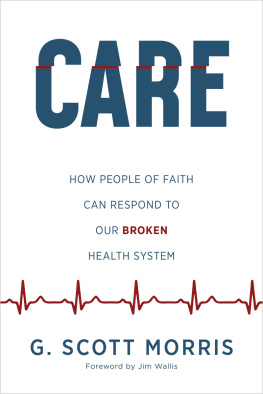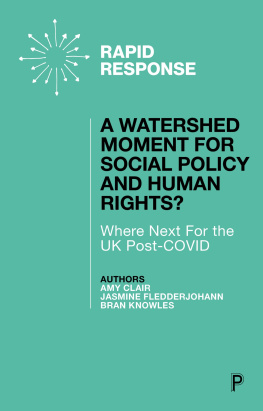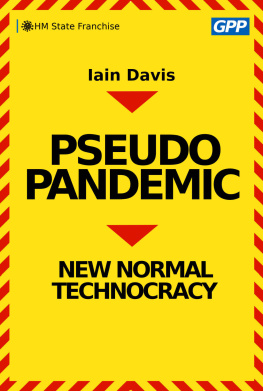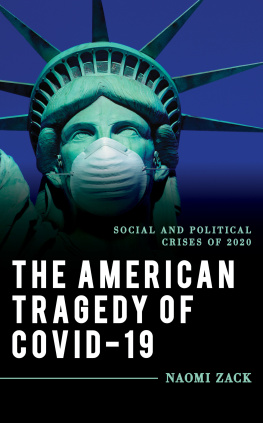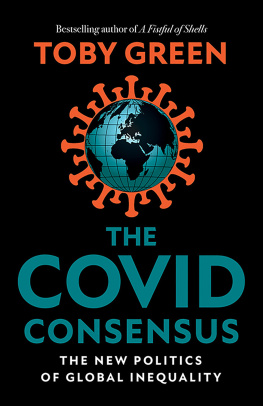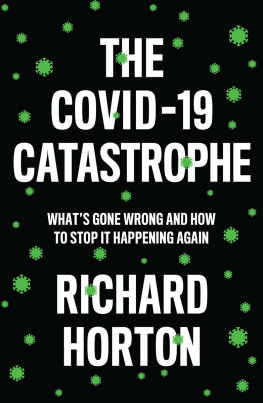Jane E. McArthur, Margaret M. Keith, and James T. Brophy
Julie S. Lalonde
Theo T., Cory B., and Jesse G.
Preface
Many thanks to theauthors who generously contributed their work to this collectionin late April 2020. Their essays were written as the first weeksof the COVID-19 shutdown unfolded in Canada, without the benefitof hindsight or the time for intensive research and peer review.We go to press knowing that it is not clear to anyone what thepandemic will mean in a month, a year, or even next week.Nevertheless, Sick ofthe System reflects theurgency of this moment and its potential to become a historictipping point in social justice struggles and the climatecrisis.
Thank you to Arundhati Roy for generously allowingus to use text from her essay The Pandemic Is a Portal to openthis book. Thanks also to copyeditor Tilman Lewis, whose work was essential to our completingthis collection on such a tight timeline.
The BTL Editorial Committee, May 1, 2020
Tola Ajao, Bara Arar, Jonathan Barker,David Bush, Devin Clancy, Amanda Crocker, Doreen Fumia, SteveIzma, Mike Ma, David Molenhuis, Karina Palmitesta, Chris Samuel,Aparna Sundar, Jamie Swift, Richard Swift, Julie Tomiak, MelissaVincent
About Between the Lines
Founded in 1977, Between the Lines publishes non-fiction booksthat support social change and justice. Our goal is not privategain, nor are we owned by a faceless conglomerate. We reflect ourmission in the way our organization is structured: BTL has nobosses, no owners. We are collectively run by our employees and asmall band of volunteers who share a tenacious belief in books,authors, and ideas that break new ground. We specialize ininformative and critical analysis of politics and public policy,social issues, history, international development, gender andsexuality, critical race issues, culture, adult and populareducation, labour and work, the environment, technology, media,and more. Visit us atwww.btlbooks.com.
Introduction
Politics and Pandemics
Richard Swift
The COVID-19 crisis is exposing deeply buried and widely ignored injustices and weaknesses in social arrangements and political systems around the world. It also reveals some potential strengths and possibilities. But the dangers of the virus are so intensely personal for each individual, each family, and each household that our minds tend to be occupied with coping with day-to-day pressures and trying to keep up with the latest news. Seeking a longer and deeper view of what the crisis might mean, we asked contributors to write short essays about what the COVID-19 crisis reveals to them about the world we live in, how it might change because of the pandemic, and what actions we can pursue to ensure these changes work towards justice and freedom for all.
It is already clear that After the Pandemic will not be the same as Before the Pandemic. Much less clear is what the shape of that change will be. The inevitability of change is disguised by powerful political, business, and media voices that call to reopen the economy and to return to normality more or less swiftly. They aim, of course, to preserve their powerful positions in the post-pandemic system. It is not surprising that the call to return to normality resonates among those threatened and those already victimized by the plague. Victimization is not simply a matter for those unlucky enough to catch COVID-19 but entails a vast swath of collateral damage: bereaved families, workers dumped from precarious work into unemployment, those already marginalized pushed to the very edge of starvation, health-care workers stressed beyond endurance in institutions lacking the basic tools to cope. No wonder the normality of a more convivial life in public spaces of a few short weeks ago holds such attraction.
But the disruptions of the current outbreak and the fear of its recurrence make a return to our previous normality highly unlikely. Past pandemics like the Black Death or the Spanish Flu brought about huge shifts in class relations and international power balances. Another aspect of the current reality reinforces the necessity of change: the COVID-19 crisis stands as a precursor to the much slower and monstrously larger global climate crisis. We already see indications that normality will never be what it was. The number of jobs lost, small business bankruptcies, entire industries shuttered or hamstrung (airlines, cruise ships, petrochemicals, oil and gas, to name only an obvious few), plus high levels of debt that will strain public finance already severely hampered by tax avoidance by corporations and the super-rich. The sales of big-ticket items like real estate and new vehicles have gone through the floor. Container ship traffic has dropped by more than half, and the whole system of international trade is endangered by autarkic reactions, with closed frontiers almost everywhere. Like it or not, we are going to emerge to a new reality that cries out for some fresh new thinking.
There are other possibilities long on offer front and centre, a fairer decentralized economy and polity. Already we see that reduced economic activity and grounded flights have resulted in a 25 percent drop in greenhouse gas emissions, less air pollution, and bluer skies. Ocean scientists claim it would take only thirty years to recover the health of oceans if we stopped despoiling them and treated them as a renewable resource. Our notion of what to revalue as necessary labour for society is shifting dramatically with the recognition that those who keep the food chain going (grocery clerks, truckers, cleaners, farmers) and care for our suddenly fragile health system need to be cherished and better rewarded. Not so much: real estate agents, the entire advertising profession, hugely expensive military machines, and the commercial services industry with its stock brokers and hedge fund managers.
The COVID-19 crisis is in no way what the degrowth and other radical environmental movements advocated. Yet their prediction that, if degrowth is not democratically planned, it will arrive nonetheless in a chaotic and harmful fashion is proving all too accurate. We can now see the outlines of a degrowth future that moves us beyond our current carbon-intensive pattern of endless expansion. In fact the COVID-19 crisis is making us do some of the things required to live within the planets ecological boundaries. We have a stark choice before us. Rework our economy and polity around the possibilities that tackle climate change, and find a better way to distribute societys wealth and sustain livelihoods. Or continue to ratchet up the labour market to produce ever more jobs while paying no attention to their ecological implications or levels of pay and conditions of work.


